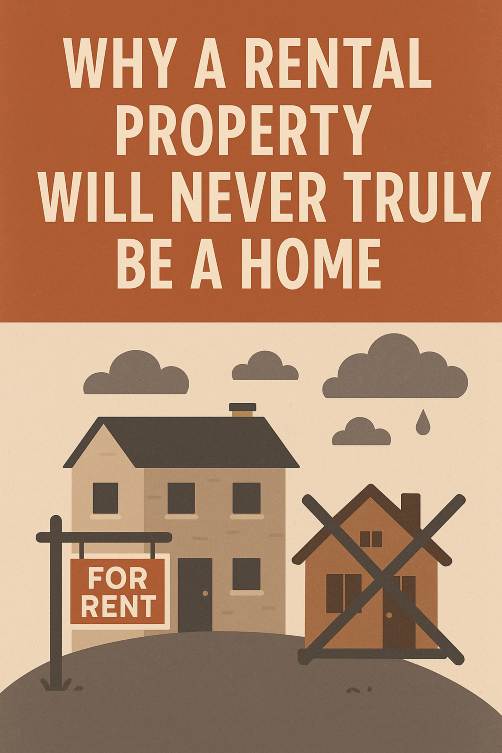Why a Rental Property Will Never Truly Be a Home
In today’s volatile housing market, the reality for many Australians is that renting is the only feasible option. Yet, despite the illusion of comfort and stability that some rentals may offer, the truth remains: a rental property will never truly be a home.
This wasn’t always the case. In the 1970s, 80s, and even into the 90s, renting in Australia offered a level of security that’s now all but vanished. Long-term leases were more common, rents were relatively affordable, and it wasn’t unusual for families to stay in the same rental property for years, sometimes decades. Landlords were often individuals or families themselves, not corporate investors looking to squeeze every last dollar out of the market.
Prior to 2021, my wife and I had rented in Manly, NSW for 20 years from the same landlord, unaware of what was to come.
Fast-forward to today, and the landscape has shifted dramatically. Property investors now dominate the rental market, and the motivations have changed. Rather than providing housing, many landlords are focused on profit, buying low, waiting for the market to rise, and then selling quickly. For renters, that means constantly living under the threat of eviction, not due to poor tenancy, but because someone sees a better financial opportunity.
This lack of security makes it nearly impossible to settle. Renters are hesitant to make a place their own, painting walls, planting gardens, or investing in improvements, because the rug can be pulled out from under them at any moment. The mindset becomes one of transience: “What’s next? Where will we go? Will we be able to afford it?”
The consequences of this instability ripple outwards. A move often means leaving behind friends, neighbours, and local support networks. Families may be forced to change schools, switch healthcare providers, or move away from ageing parents they help care for. And as rents continue to soar, renters may have to move further and further away from their jobs, trading hours of their day for a longer commute.
The emotional strain is real, particularly for couples and families. Constant uncertainty, financial stress, and the inability to plan long-term can put pressure on relationships. Children feel the effects too: the disruption of moving, leaving friends, adapting to new environments, and living in homes where they’re constantly told “don’t get too comfortable.”
A home is more than just a place to sleep. It’s a foundation for stability, growth, and community. While a rental property can provide temporary shelter, it cannot offer the permanence, autonomy, or peace of mind that defines a true home. And until Australia finds a way to restore balance and long-term security to the rental market, as it once had, millions will remain stuck in a cycle of housing insecurity, never quite feeling at home in their own lives.
While our newly elected Labor government lead by Anthony Albanese has made changes, making it easier to secure a loan and enter the housing market, prices continue to rise, dominated by investors and their attempt to monopolise and control the housing market.
Rather than changing property investment tax laws to create a level playing field, Mr Albanese has created a fire-storm for first home buyers and an unparalleled debt that no other Australian has ever had to manage.
